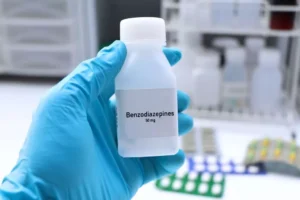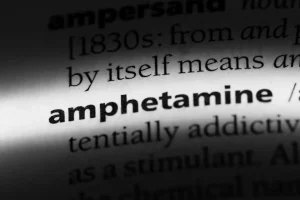
Additionally, the preservatives used in alcohol too can be harsh on your stomach, increasing the chances of allergic reactions causing stuffy nose or sinus congestion. People with a beer allergy will likely experience symptoms similar to other allergic reactions, such as abdominal pain, bloating, and chest tightness. These symptoms can occur soon after consuming beer or take a little longer to appear. It is important to note that a food allergy is the immune system’s response to a food protein that the body perceives as harmful. In contrast, a food intolerance or sensitivity, which is more common, involves the digestive system and typically presents less severe symptoms, such as digestive problems.
Can other triggers, such as temperature or emotions, contribute to alcohol-induced sneezing?
Whether you only have the occasional glass of wine at dinner or frequently enjoy late nights out, you’re sure to learn valuable tips to nip post-drinking nasal congestion in the bud. If you have a true alcohol allergy, the only way to avoid symptoms is to avoid alcohol entirely. Read the ingredient lists of foods and drinks, ask restaurant staff for information about menu items, and avoid products that contain alcohol.

Causes of Stuffy Nose on Drinking Alcohol & Ways to Get Rid of it?
However, you can try avoiding specific alcoholic beverages or reducing your alcohol consumption to see if it makes a difference. Having a Alcoholics Anonymous mild intolerance to alcohol or something else in alcoholic beverages might not require a trip to a doctor. Simply avoid alcohol, limit how much you drink or avoid certain types of alcoholic beverages. This essential vitamin “aids in the metabolism of carbohydrates and helps regulate blood sugar levels, which can, in turn, reduce the likelihood of nausea,” Teen says. The National Institutes of Health says you can get vitamin B6 through foods like chickpeas, tuna, fortified breakfast cereals, or through a supplement. Just be sure to check in with your healthcare provider before trying a new supplement, though.
- When this inflammation occurs in the airway, patients can experience wheezing and shortness of breath.
- Knowing the potential risk posed by histamines will help ensure that the wine is safe and enjoyable for everyone to consume.
- The most commonly proposed explanations include congestion, allergies, nerve stimulation, and genetic factors.
- One of the most common forms of alcohol intolerance is sulfite intolerance.
- Alcohol can trigger asthma attacks in patients who have previously been diagnosed with asthma.
- If your doctor prescribes an epinephrine auto-injector, you should carry it with you at all times.
Allergies

A skin prick test or blood test may be used to detect an allergic reaction to the particular compounds that are present in red wine. If a person is found to be sensitive to red wine, they may need to avoid it altogether or switch to white wine, which contains a lower concentration of histamine. It is important to note that not all allergic reactions to red wine are caused by histamine. Some people may be more sensitive to the tannins than others, making them more likely to experience this reaction after drinking a glass of red wine. To reduce the likelihood of sneezing from red wine, some experts recommend choosing wines with lower levels of tannins.
- Read beverage labels to see whether they contain ingredients or additives you know cause a reaction, such as sulfites or certain marijuana addiction grains.
- A study assessed the histamine levels in 17 beers, and the results ranged from 21 to 305 micrograms per litre.
- Yes, certain ingredients in alcoholic beverages, such as sulfites in wine or hops in beer, can be more likely to induce sneezing in susceptible individuals.
- It turns alcohol into acetic acid, a main component of vinegar, in your liver.
- Beer and wine, in addition to being high in histamine, can aggravate a runny nose or nasal congestion.
- While rare, it is possible for a person to have an allergic reaction when exposed to the ingredients found in red wine such as histamines or sulfites.
Is alcohol-induced sneezing a sign of an alcohol allergy?
However, if it persists or becomes a consistent reaction, seeking advice from a healthcare professional is recommended. Alcohol flush reaction refers to facial flushing and other uncomfortable symptoms experienced by individuals who have difficulty metabolizing why do i sneeze when i drink alcohol alcohol. Some individuals may have a genetic predisposition that makes them more prone to sneezing after consuming alcohol. While further research is needed to fully understand the genetic factors involved, studies have suggested a possible link between certain genes and alcohol-induced sneezing.

If you have any of the above-mentioned symptoms after consuming alcohol, it is best to stop drinking and seek medical help if necessary. If you suspect you have a beer allergy, you can consult a doctor and undergo allergy testing to determine the specific ingredients you are allergic to. To avoid adverse reactions, sensitive individuals should reduce their exposure to sulfites. The condition is caused by inheriting a gene that affects how alcohol is broken down by the body.

- If you develop symptoms after drinking alcohol, make an appointment with your doctor.
- For mild cases of sulfite intolerance, avoiding products with added sulfites may provide relief.
- These symptoms can occur almost immediately after consuming beer and should be considered severe and potentially life-threatening.
- In very rare cases, reactions to alcohol may be a sign of Hodgkin’s lymphoma.
Watch out for other signs like fever, gastric upset or dizziness, in which case you need medical help. If stuffy nose is accompanied with bleeding form nose, consult your physician immediately. It’s not hard to imagine that experiencing a pounding headache after a pint of beer can really detract from enjoying your night sneezing after drinking alcohol out with friends. The floaties are perfectly safe to consume, although it can sometimes mean that a beer is too old (old beer sediment looks like dandruff — avoid at all costs). No, alcohol-induced sneezing and alcohol flush reaction are two distinct phenomena.
- Additionally, you can opt for wine alternatives such as mead or beer which typically contain lower levels of sulfites than wine.
- “Some degree of nausea is very common and expected in pregnancy, but if you are ever concerned, I highly recommend contacting your OB/GYN provider,” Teen says.
- Besides wines, fruits like bananas, kiwi, melons, and grapes can also contain sulfites, though in much smaller amounts.
- People who lack certain enzymes in their bodies often get troubled by these problems.
- In this article, we’ll explore why sneezing and alcohol sometimes go hand-in-hand.
If you have this variant, it causes your body to produce less active ALDH2. If you have ever experienced sneezing after consuming alcohol, you might be wondering why this peculiar phenomenon occurs. While it may seem perplexing, there is a simple explanation for this reaction.
The symptoms range from sneezing and congestion to a more severe anaphylactic reaction. Histamine, which is produced during the breakdown of https://ecosoberhouse.com/ alcohol, is one of the main compounds responsible for these allergic reactions. People who are sensitive to histamine may experience more severe symptoms than those who are not. It is important to be aware of any potential allergy symptoms that can occur when consuming alcoholic beverages and speak to a doctor if any reactions occur. In conclusion, the exact reasons behind why some people sneeze after drinking alcohol are not definitively known.